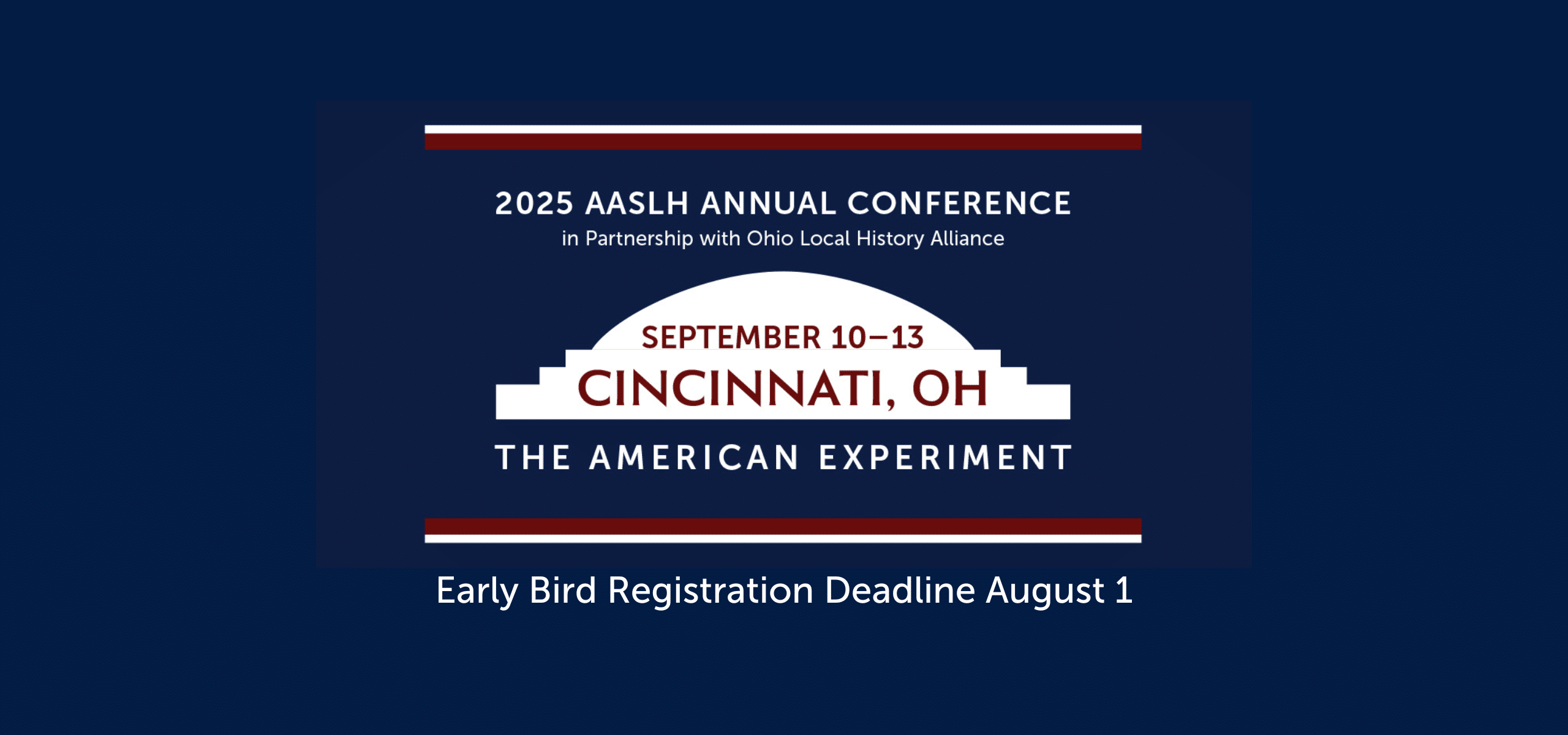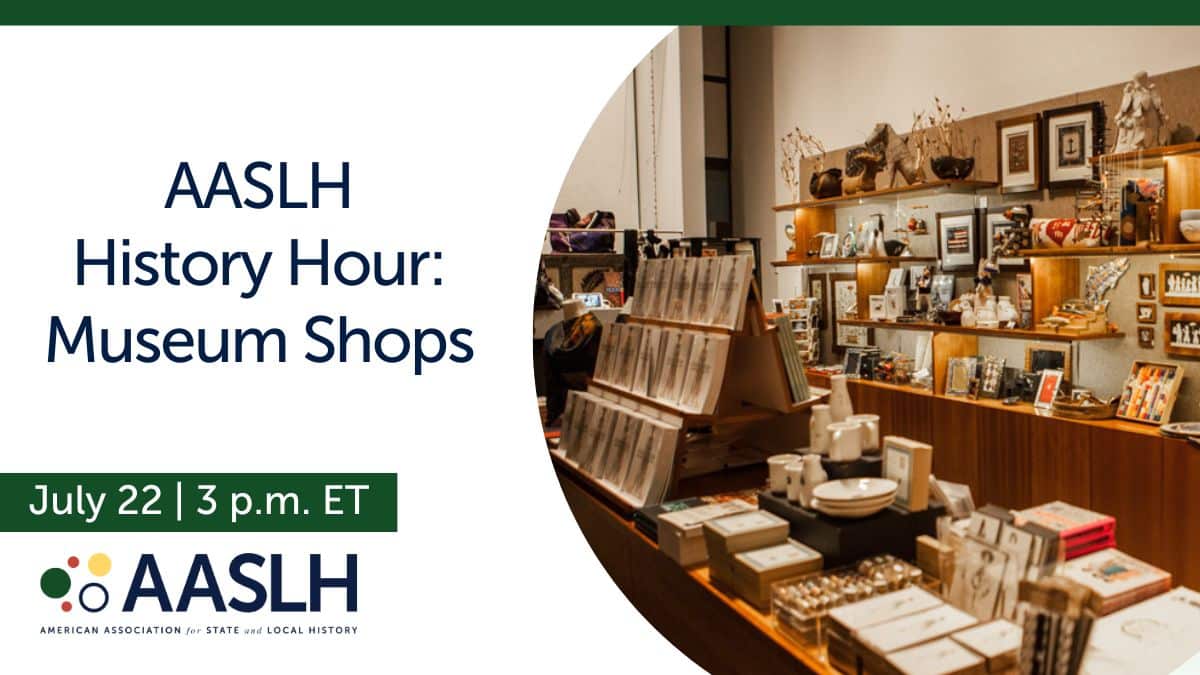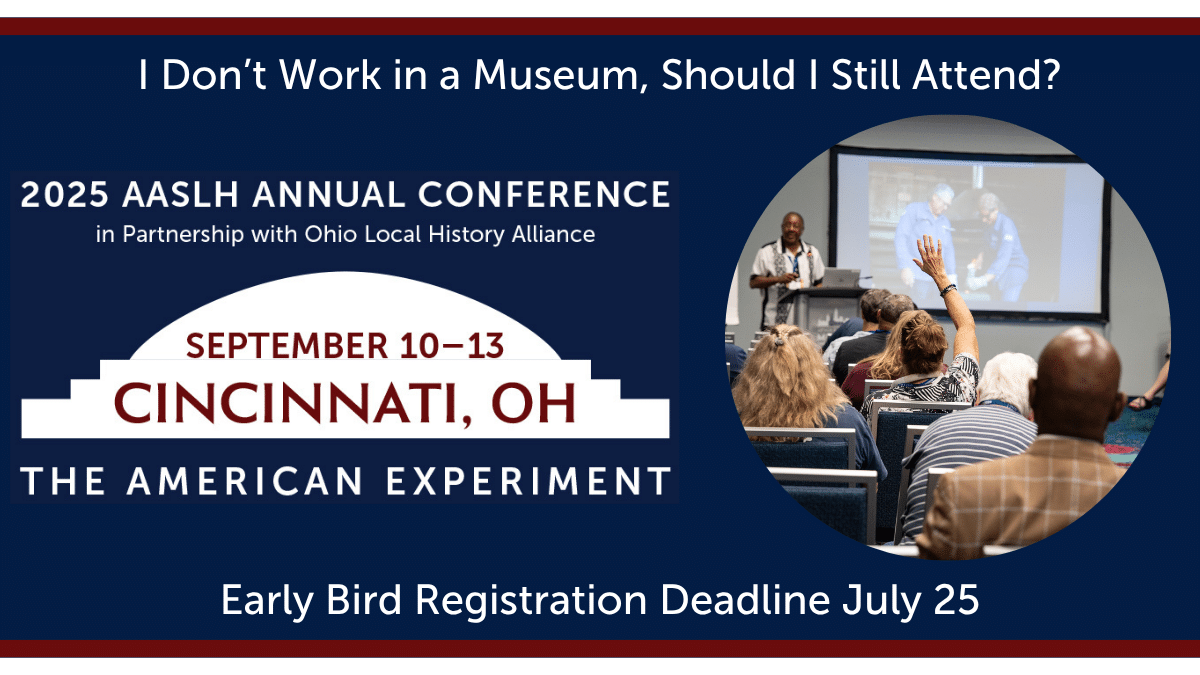Hello Everyone,
I am very excited to be leading the blogging sessions for this month. I have asked a number of colleagues from around the field to contribute to the topics. This month we will cover a wide range of topics from Commemorations, School Group logistics, AASLH Conference Session Planning, & Reaching Out to New Audiences. We will be joined by Jackie Barton (Ohio Historical Society), James “Zach” Zacharies (Museum of Arts & Sciences Daytona Beach, Florida), Jamie Glavic (Ohio Historical Society), & Dina Bailey (National Underground Railroad Freedom Center). I hope that the selected topics will help us re-think old ideas, and new ones moving forward.
This week I have asked Jackie Barton the Director of Education & Outreach at the Ohio Historical Society to talk about her experience with commemorations. Jackie oversees the State of Ohio Civil War 150 Commission and has brought outstanding leadership to guiding this important initiative.
Rich Cooper, Interpretive Services Manager
National Underground Railroad Freedom Center
Commemorating in the Postmodern Age
By Jackie Barton, Director, Education & Outreach at the Ohio Historical Soceity
 With the approach of September 11, each of our institutions is discussing what to do to commemorate the passing of this difficult event. The past several years have seen the marking of some significant and disparate anniversaries, including the Civil War, the War of 1812, John Glenn’s orbit of the earth, and more. Particularly in our work on the aforementioned wars, a heavy focus has been given to heretofore untold stories, unexamined perspectives, and controversial topics, making the efforts of many history organizations truly commemorative rather than primarily celebratory, as was often the custom in the past. We’re digging into the honorable and the uncomfortable simultaneously, hoping to bring in new citizen groups and individuals who couldn’t see their own perspective reflected in past commemorations. What’s driving this shift, and what are we learning from it?
With the approach of September 11, each of our institutions is discussing what to do to commemorate the passing of this difficult event. The past several years have seen the marking of some significant and disparate anniversaries, including the Civil War, the War of 1812, John Glenn’s orbit of the earth, and more. Particularly in our work on the aforementioned wars, a heavy focus has been given to heretofore untold stories, unexamined perspectives, and controversial topics, making the efforts of many history organizations truly commemorative rather than primarily celebratory, as was often the custom in the past. We’re digging into the honorable and the uncomfortable simultaneously, hoping to bring in new citizen groups and individuals who couldn’t see their own perspective reflected in past commemorations. What’s driving this shift, and what are we learning from it?
The integration of new generations of scholars, historians, and educators into our staff and volunteers, many of whom were college educated amidst a high tide of academic post-modernism, has increased the tendency to critically deconstruct what we “know” and the desire to reflect that deconstruction. Longtime scholars and staff members are likewise digging deeper, perhaps in response to the community outreach and engagement that museums and historic sites across the nation are now striving to incorporate into their work. Working with diverse communities cannot help but give one an appreciation for a diversity of viewpoints, particularly when one is dealing with a hefty topic like war.
I embarked on the Ohio Civil War 150 with an enthusiasm to tell untold stories, to examine difficult and contrary narratives, and to ensure that our efforts would provide lasting value to future generations. I remain proud of what we’re doing to that end, but I have also learned some lessons along the way:
- Initially, my core audience may not warm to new narratives or to difficult aspects of the story. I had a committee member tell me at the start of our 150th that we “all know that what people want is bullets, blood, and bayonets.” Frustrating, yes, but also reflective of the viewpoint of some of those most enthused about the anniversary. How do we keep and engage with people who lined up in advance of this anniversary like September 11, this may mean people who seek to commemorate highly personal memories rather than larger historical narratives, given the proximity of the event. How can you engage and play a valuable role, including advancing the narrative and broadening thinking about this event?
- Everything takes longer than I hope. As historians and educators, we have lofty goals for engaging people, evolving thinking, and developing stories. When you’re dealing with an already-embraced narrative, especially a nationally embraced one, it takes some time to build trust with groups: the existing audience will need to trust your organization before it will be open to the new questions and stories you want to introduce, and new audiences will need to get to know your organization before they will engage in a commemoration of an event that may have never left room for them before. In Ohio, these audiences for Civil War history included those that work on African American history and women. The black history community in particular had felt ignored in the mainstream Civil War narrative for a long time, and we had to work hard to prove that our invitations to participate were meaningful and not tokenism. For your commemoration, who has not been at the table before, and what will they initially think about your advances? Prepare for that and be realistic about what you can accomplish with a commemoration.
- What we do after the commemoration will be as important as what we do during. Based on the importance that trust has played in being able to bring disparate constituents to the table around a meaningful Civil War commemoration, it is clear that what our organization does to maintain these relationships after 2015 will be foundational to our future efforts. Think about the same commemoration 50 years from now: what advances should you be putting in place to grow over that time toward that? This implies deeper relationships than we have traditionally sustained, as history organizations can sometimes bounce from anniversary to anniversary and thus bounce from one group of constituents to another. This is a question I have yet to answer, but we are grappling with it now.
What lessons are you learning in your commemorations?



